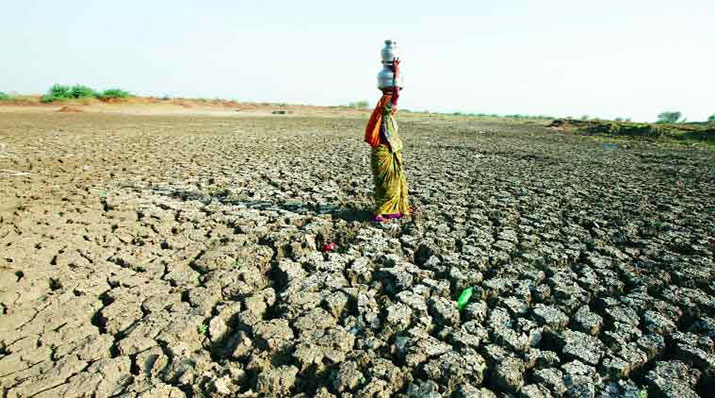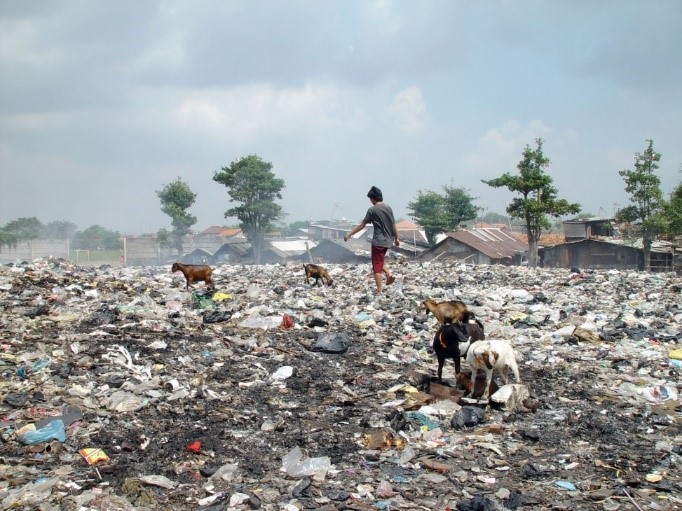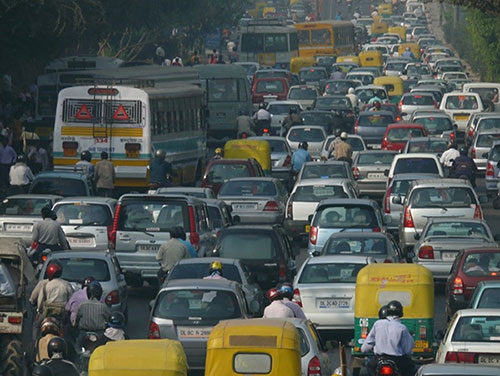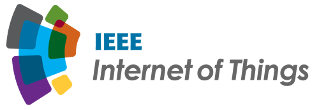IoT of Inequality: How NOT to Deal with the Topic of Digitalization
Once a shepherd had two horses, one was reliable and fast, and another one was slow and weak. The shepherd instead of looking after the weak one and trying to make him fit, he preferred riding the healthy one and taking him almost everywhere. He also fed him better which in long-term led the healthy horse to become heavy and feel lethargic all the time. Later the healthy one became sick and the shepherd then instead of having healthy horse has to deal with two ill and weak horses.
What does this story have to do with digitalization? Well, this is our approach to the whole idea of digitalization and its implementation worldwide. Instead of investing time and resources and bringing the concept of digitalization to the underdeveloped nation or the “weak horse”, we are feeding the already “healthy horse” or the developed country with fascinating ideas and projects which might result into sickness in the long term. The early symptoms of this illness can already be witnessed. A World Economic Forum[1] report says that labor markets will observe a net loss of over 5 million jobs in 15 major developed and emerging economies. Is this in line with the idea of digitalization?
The World witnessed more than 4.000 ransomware attacks per day in 2016[2] which approx. 300% more than that in 2015. This since we made the whole IT infrastructure more vulnerable to such attacks by simply connecting every electronic device to the internet. Are we just merely neglecting the side effects of digitalization?
Being not able to read your power meter values on your smartphone is not a problem as compared to not having access to water and electricity due to scarcity. Being not able to sit in a self-driven car is not a problem as compared to be stuck in traffic jam in peak summer for hours and breathing exhaust gases all the time. These are some of the typical problems of the underdeveloped or developing nations. The question which the Gurus of digitalization should address is that if the idea of digitalization/IoT for industry/IT giants are about to create business and thus pushing up the turn over, then why not boosting digitalization across such nations by diverting the resources there. This is far better than making own factories intelligent and then laying down hundreds or thousands of hardworking and loyal employees.
Here are some of the typical problems of the under-developed or emerging nations, the answer to which could be well-implemented digitalization.
Corruption: According to an IMF report more than 1 trillion dollars is paid in bribes each year around the world with underdeveloped and developing countries topping the list of being the most corrupt nations. People in these nations spend up to 13 percent of their income to bribes which later discourages them from services made available by the government. Corruption is the cause of crime in many countries and acts as a fuel to poverty and social inequality. Institutes worldwide are trying their best to strictly monitor and thus eliminate corruption worldwide, unfortunately without much success until now. This, however, might change in future. Experts nowadays are betting on the invention of blockchain to fight corruption. The blockchain is a centralized technology which offers full transaction transparency, thus providing no room for fraud or capital manipulation. Blockchain implementation, however, demands a robust digital infrastructure which in my opinion is an area where IT communication network provider should look into.
Commodity Wastage or Theft: Water and electricity to two essential needs of every society. Their scarcity or theft leads to a significant human rights problem. The figures about water scarcity worldwide are very alarming with some 780 million[3] people having no access to clean and safe water. One of the primary reason for water scarcity is wastage or theft in emerging/underdeveloped nations. The electricity theft worldwide touched $89 billion[4] annually in 2015 with India, Brazil, and Russia being the top 3 nations with highest losses. With an introduction of smart water and electric meters along with in-built sensors, certain startups are trying to monitor the overall water and electricity supply and consumption. Based on which a customer profile can be generated so that any irregularities can be immediately reputed to the consumer as well as the respective authorities. This again needs support from government and the industry without which it will take ages to tackle the mentioned problem.

Landfills: Seems like the never-ending problem of nations with inadequate or insufficient infrastructure People in some of these countries spend their lives in an area surrounded by a heap of waste or landfills. This is there exist no proper waste management plan due to lack of workforce or resources. This bottleneck can, however, be eliminated by daily tracking and monitoring of location (webcams) with landfills and adjusting the waste management plan accordingly. Here, for instance, the resources can be diverted to a site with a frequent buildup of waste. This, however, demands a robust digital infrastructure which can only be established if government and industry work together.

Street crimes are on the rise in nations with higher social inequality. Authorities in these countries feel helpless due to the degree and frequency of crime happening every day versus the available workforce. Interestingly, the biggest problem is that many of these crimes go unreported since people in these nations have lost their faith in government/authorities/police. The legal structure in these countries needs a face-lift which can be achieved by digitalization the complete process of monitoring, documenting of crime and its prosecution. The street light camera or public surveillance camera project in the US is an excellent example of crime monitoring here. The public surveillance camera installed in Baltimore and Chicago[5] region not only resulted in reduced crime but also proven to be cost-effective than the conventional way. A cloud-based complain lodging system can be established allowing the verified victim to lodge complain straight via smartphone. A digital platform managing all these complains based on degree or severity of the crime as well as the date of occurrence can be created.
Healthcare: Proper healthcare is still considered as a luxury in many of underdeveloped/developing nations. Approximately 80 percent[6] of people in these countries rely on public hospitals for treatment. These clinics are often running over-capacity and are ill-equipped. A healthcare digital platform which integrates the existing database of all the hospitals in the region along with a list of their respective treatment capabilities, services could ensure the even distribution of patient load in these hospitals thus allowing treatment to each and very needy individual without any delay. Access to a healthcare App coupled with the platform can enable the patient to see which hospital nearby has an available bed and a doctor and can provide him/her with an option of online booking.
Uncontrolled Traffic: Interestingly an ongoing problem of developing countries. With four-wheeler getting cheaper and infrastructure narrower day by day, the traffic condition in these countries is on the verge of a breakdown. Traffic jams and road accidents are on the increase with pollution level due to an increased number of vehicles on the road, reaching new peaks. Equipping traffic lights with infrared sensors or webcams can help the authorities to divert the traffic in case of traffic congestion. Moreover, long-term monitoring (analytics) can be beneficial in planning infrastructural change, road buildups in regions where traffic jams are frequent.
Car sharing/renting/hiring apps should be promoted. By combing the complete transportation system along with consumer profile, one can monitor the user segment preferring public transportation over own. This section can then be rewarded in the form of discounted bus/train/metro tickets or using an annual grant.

The list of problems of these nations is long but adequately implemented digitalization along with the synergy between government and industry could be the answer to all these issues. We should not repeat the mistake of the shepherd and should help the weak horse to be as fit as the healthy horse. Only this way we can achieve social and economic balance across the world.
[1] https://www.urban.org/sites/default/files/publication/27546/412401-Evaluating-the-Use-of-Public-Surveillance-Cameras-for-Crime-Control-and-Prevention-A-Summary.PDF
[2] http://factsanddetails.com/world/cat57/sub381/item2154.html
[3] https://water.org/our-impact/water-crisis/
[4] https://www.prnewswire.com/news-releases/world-loses-893-billion-to-electricity-theft-annually-587-billion-in-emerging-markets-300006515.html
[5] https://www.weforum.org/press/2016/01/five-million-jobs-by-2020-the-real-challenge-of-the-fourth-industrial-revolution/
[6] https://www.justice.gov/opa/speech/deputy-attorney-general-rosenstein-delivers-remarks-2017-north-american-international
 Vivart Kapoor is a project manager at KSB SE & Co.KGaA in Germany where he is involved in various IoT/digital transformation projects. As a hobby blogger, he regularly contributes his expertise and knowledge in the field of the internet of things to several IoT expert panel or blogging sites. Vivart obtained his Bachelors in Biomedical Engineering from Manipal Institute of Technology in India and Masters in Technical Management from University of applied sciences in Emden, Germany.
Vivart Kapoor is a project manager at KSB SE & Co.KGaA in Germany where he is involved in various IoT/digital transformation projects. As a hobby blogger, he regularly contributes his expertise and knowledge in the field of the internet of things to several IoT expert panel or blogging sites. Vivart obtained his Bachelors in Biomedical Engineering from Manipal Institute of Technology in India and Masters in Technical Management from University of applied sciences in Emden, Germany.
Sign Up for IoT Technical Community Updates
Calendar of Events
IEEE 8th World Forum on Internet of Things (WF-IoT) 2022
26 October-11 November 2022
Call for Papers
IEEE Internet of Things Journal
Special issue on Towards Intelligence for Space-Air-Ground Integrated Internet of Things
Submission Deadline: 1 November 2022
Special issue on Smart Blockchain for IoT Trust, Security and Privacy
Submission Deadline: 15 November 2022
Past Issues
September 2022
July 2022
March 2022
January 2022
November 2021
September 2021
July 2021
May 2021
March 2021
January 2021
November 2020
July 2020
May 2020
March 2020
January 2020
November 2019
September 2019
July 2019
May 2019
March 2019
January 2019
November 2018
September 2018
July 2018
May 2018
March 2018
January 2018
November 2017
September 2017
July 2017
May 2017
March 2017
January 2017
November 2016
September 2016
July 2016
May 2016
March 2016
January 2016
November 2015
September 2015
July 2015
May 2015
March 2015
January 2015
November 2014
September 2014


